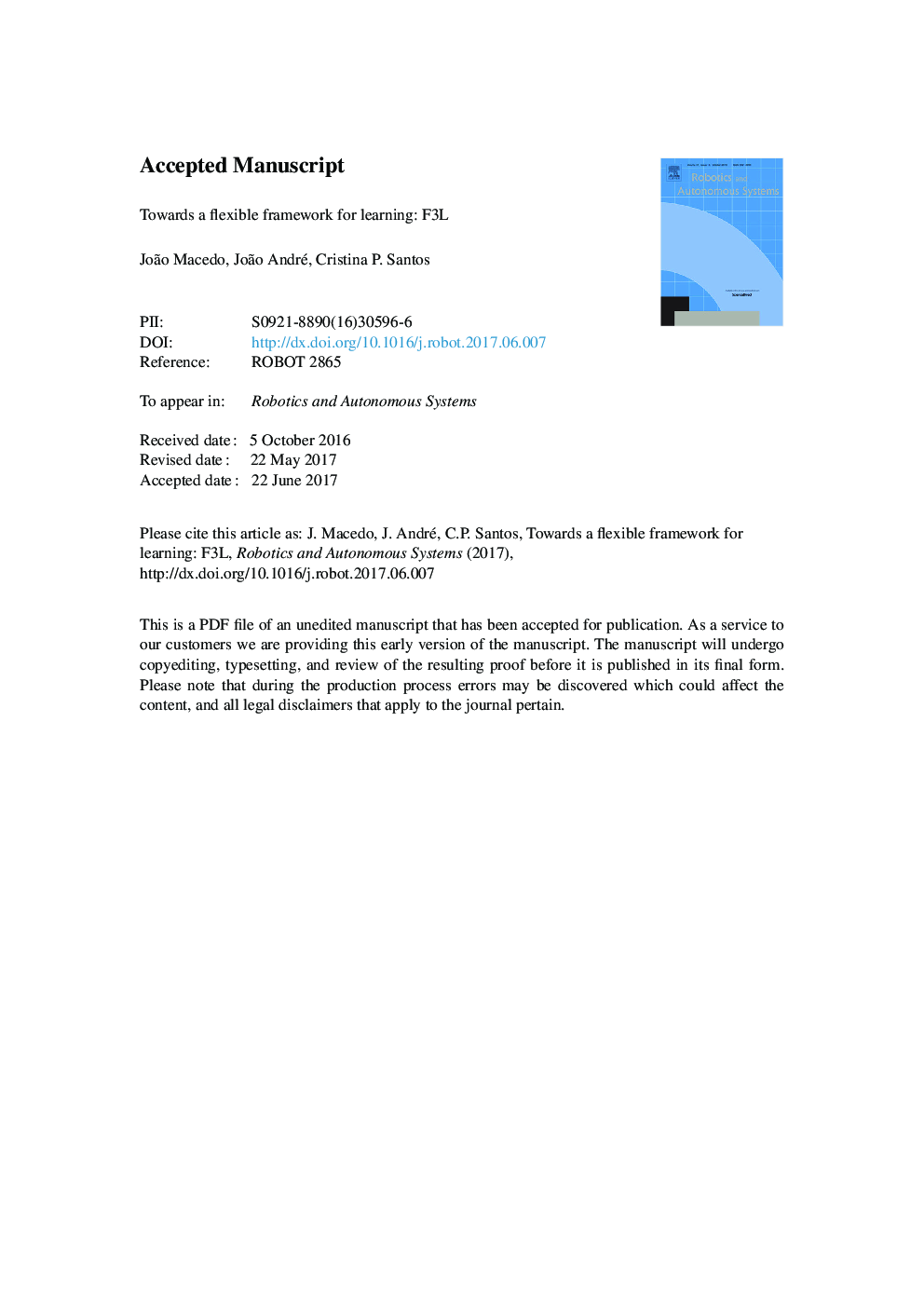| Article ID | Journal | Published Year | Pages | File Type |
|---|---|---|---|---|
| 6867412 | Robotics and Autonomous Systems | 2017 | 46 Pages |
Abstract
For stable and adaptable movement generation, it is required that movement primitives are generalizable in order to be executed in different contexts and for distinct instances of the same task. Therefore, a motion primitive must adapt policy parameters according to environment variables, instead of repetitively executing the exact same motor commands when placed into a specific context. Another important aspect is how the learning process of motion primitives is guided. Some movements are too complex to allow its primitives to be learned all at once, i.e, learning all their intricacies without a properly structured approach. In order to simplify this process, a framework by the name of Flexible Framework for Learning (F3L), that allows storing, combining and mutual and partial learning of parameterized policies, is presented. It provides the means, for instance, to build a movement primitive library or to perform offline gradual learning of a specific motor skill. Additionally, F3L is used to teach the controller of a biped robot (DARwIn-OP) to adapt the parameters of CPG-based locomotion according to the slope angles of the underlying surface. The introduction of several novel feedback mechanisms is also suggested. The results achieved are gratifying, promising and attest the fact that F3L can provide an effective and useful tool to structure the learning process of complex tasks. The direction correction feedback mechanism, in addition to keeping the robot walking in a straight path, has shown the ability to control walking direction bypassing internal CPG dynamics.
Related Topics
Physical Sciences and Engineering
Computer Science
Artificial Intelligence
Authors
João Macedo, João André, Cristina P. Santos,
